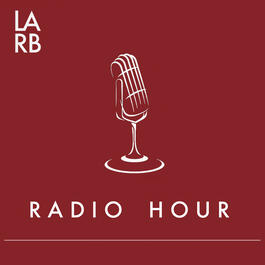
LARB Radio Hour
The Los Angeles Review of Books Radio Hour is a weekly show featuring interviews, readings and discussions about all things literary. Hosted by LARB Editors-at-Large Kate Wolf, Medaya Ocher, and Eric Newman.
Show episodes
Today's episode features a live recording from a LARB Luminary Dinner honoring writer, performer and actor Jenny Slate. Author Sarah Manguso sits down with Slate for an intimate conversation exploring the complexities of balancing artistic practice with the demands of parenthood and the ways personal transformation sha
Kate Wolf is joined by two of today's finest film critics to discuss the current state of Hollywood—including the sale of Warner Brothers Discovery—the art of writing about movies, and some of the year's best films. Up first is critic A.S. Hamrah, author of two new books: Last Week In End Times Cinema, which compiles t
It's that time of the year again! Hosts Kate Wolf, Medaya Ocher, and Eric Newman look back on some of the bright lights from a pretty dark year with a rundown of their favorite books, movies, TV shows, music, and scandals from 2025. For a full list of this year's picks, visit lareviewofbooks.org/podcasts/larb-radio-hou
Medaya Ocher and Eric Newman speak with director Julia Loktev about her new documentary My Undesirable Friends. Filmed in 2021, just before Russia's invasion of Ukraine, the five-hour epic follows independent journalists at TV Rain as they navigate escalating government repression and the "foreign agent" laws designed
Kate Wolf and Eric Newman speak with Robin Coste Lewis about her new poetry collection, Archive of Desire. The four part collection emerged out of a collaboration with other artists commissioned by the Onassis Foundation to celebrate the 160th birthday of poet Constantin Cavafy, exploring Lewis's encounters with Cavafy
Eric Newman speaks to Brandon Taylor about his latest novel, Minor Black Figures. It centers on Wyeth, a Black artist in his thirties wrestling with creative stagnation and the pressures of sudden fame after some of his paintings unexpectedly go viral. As he resists the temptation to produce the sort of identity-based
